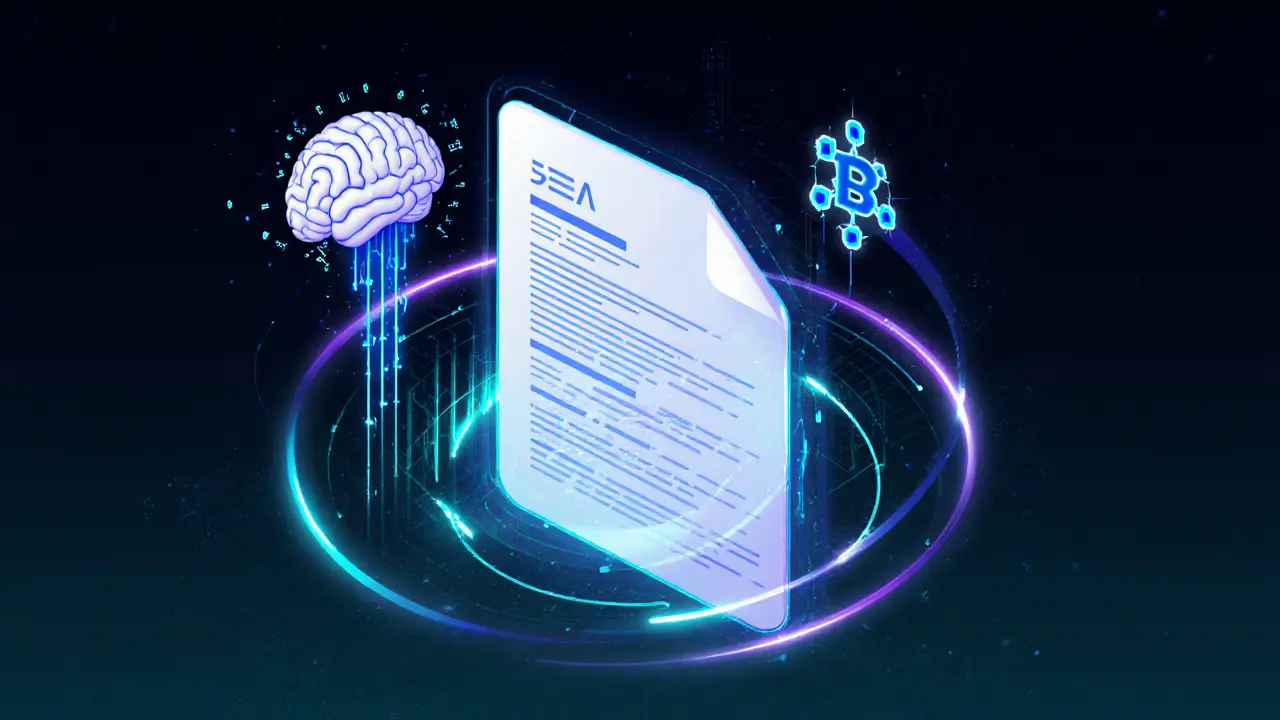AI-driven Smart Contracts
When working with AI-driven smart contracts, software agreements that use artificial intelligence to adapt, execute, and enforce terms on a blockchain. Also known as intelligent contracts, they blend AI decision‑making with crypto ledger security. This technology lives at the intersection of blockchain, a decentralized ledger that records transactions immutably, artificial intelligence, machine‑learning models that can analyze data and make predictions, DeFi, decentralized finance platforms that run without traditional intermediaries and oracles, services that feed real‑world data into smart contracts. Together they enable contracts that not only self‑execute but also learn and react.
Why AI-driven Smart Contracts Matter
AI-driven smart contracts combine AI and blockchain in a way that changes how agreements are written and enforced. The AI layer can assess risk, evaluate credit scores, or predict market shifts before the contract locks in conditions. This means less manual oversight and faster settlement, a core need for modern finance. At the same time, the blockchain backbone guarantees transparency and tamper‑proof records, so participants trust the outcome without a third party.
One major benefit is automated compliance. Regulators increasingly demand real‑time reporting, and AI can parse transaction data, flag anomalies, and trigger corrective actions within the contract itself. This reduces costly audits and helps projects stay on the right side of law, especially in fast‑moving jurisdictions. For DeFi platforms, that automation translates into higher liquidity because users feel safer knowing contracts self‑police.
Real‑world use cases are already emerging. Insurance protocols use AI‑driven contracts to assess damage via image recognition before payouts. Supply‑chain trackers embed AI to predict delays and automatically adjust penalties. In lending, AI evaluates borrower behavior continuously, adjusting interest rates on‑the‑fly. All these scenarios rely on reliable oracles, which act as the bridge between off‑chain data and on‑chain logic.
Security remains a top concern. Adding AI introduces new attack surfaces—malicious data feeds, model manipulation, or biased algorithms could corrupt outcomes. That’s why robust oracle design and thorough model auditing are essential. Projects often combine multiple oracle sources and use consensus mechanisms to verify data integrity before the AI component makes a decision.
Looking ahead, tokenomics will intertwine deeper with AI. Tokens can power AI model training, rewarding participants for providing high‑quality data. Conversely, AI can manage token supply dynamically, stabilizing prices or incentivizing desired user behavior. Cross‑chain interoperability will also grow, letting AI‑enhanced contracts operate across multiple ledgers, expanding their reach.
As the ecosystem matures, you’ll see more standards for AI integration, clearer regulatory guidelines, and better tooling for developers. The blend of intelligent decision‑making with immutable ledgers is set to reshape finance, insurance, gaming, and beyond. Below you’ll find a curated set of articles that dive into licensing, token specifics, exchange reviews, and practical guides—all linked by the thread of AI‑driven smart contracts.

Smart Contracts 2025: Shaping the Future of Decentralized Apps
May 10, 2025, Posted by Ronan Caverly
Explore how AI, cross‑chain tech, and DAOs are reshaping smart contracts in dApps, with practical steps for developers and businesses looking ahead to 2030.
MORESEARCH HERE
Categories
TAGS
- decentralized exchange
- crypto exchange
- crypto exchange review
- crypto coin
- crypto airdrop
- cryptocurrency
- CoinMarketCap airdrop
- cryptocurrency trading
- smart contracts
- tokenomics
- DeFi
- cryptocurrency exchange safety
- crypto airdrop 2025
- cryptocurrency airdrop
- cryptocurrency exchange
- MiCA
- crypto airdrop guide
- blockchain token distribution
- crypto token
- Portugal crypto tax
